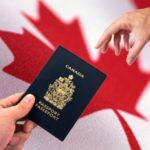Thinking about studying in the UK? It’s a smart choice with world-class universities and globally recognized degrees. Students enjoy a vibrant campus life, cultural diversity, and great post-study work opportunities.
To get there, you’ll need to meet key requirements like securing a CAS, showing proof of funds, and completing health checks.
Each step matters, but with proper planning the process becomes smoother. Use this guide to understand everything you need to know to Study in the UK.
A Comprehensive Guide for Indian Students to Study in the UK
-
An offer and a CAS (Confirmation of Acceptance for Studies)
First, you must apply to and be accepted by a UK education provider that is a licensed sponsor. After you accept an offer, the university issues a CAS number. You need that number to apply for the student visa. Apply for your visa within the CAS validity window—otherwise the CAS may expire.
Tip: Save the CAS email and take screenshots. Universities sometimes update CAS details (such as course dates or fees); having the exact copy you applied with prevents confusion later.
-
Proof of funds (maintenance requirement)
You must prove you have enough money to cover tuition plus living costs. The usual approach is to show funds for tuition plus a set number of months of living expenses. If your CAS confirms your tuition is already paid or a sponsor will cover living costs, different rules may apply.
Practical advice:
- Use a recent bank statement that clearly shows the required balance for the prescribed consecutive days.
- If a sponsor (for example, a parent or a scholarship body) is paying, include a formal sponsorship letter and supporting bank documents.
-
Required documents (passport, photos, CAS, financial evidence)
At minimum, your visa application should include:
- A current passport or valid travel document.
- Your CAS number from the provider.
- Bank statements or other financial evidence.
- A tuberculosis (TB) test certificate if required (see next section).
- Academic transcripts and English test results if requested by your university.
Human tip: Scan everything into clear PDFs before you start the online visa form. Name files sensibly (for example, Passport_Ankit.pdf) so you avoid uploading the wrong document.
-
Tuberculosis (TB) test — often required for applicants from India
If you are coming to the UK for six months or more and you have lived in certain countries recently, you may need a TB test from an approved clinic in your home country. Only test certificates from approved clinics are accepted. Book this test early because certificates can take time to be issued.
Advice: Keep the original TB certificate and a high-resolution scanned copy to upload to your application.
-
English language requirement
Universities set English language benchmarks for each course. Common proofs include IELTS (Academic) or other approved Secure English Language Tests. If your university is satisfied with your English evidence when issuing the CAS, you usually won’t need to send separate English test proof to the visa authorities—however follow the instructions on your offer letter carefully.
-
Visa fees and the Immigration Health Charge
You must pay the visa application fee when you apply. In addition, you will normally pay a health surcharge that gives you access to the national health service during your stay. These fees change from time to time, so budget for the visa fee, the health charge, and extra administrative costs.
-
Permission to work during studies
Many student visas permit limited work hours during term time and full-time work during vacations:
- For degree-level courses, the usual limit is up to 20 hours per week during term time.
- Lower-level courses often have lower hour limits.
- You can usually work full-time during scheduled course vacations.
If your course includes an assessed placement or internship, confirm whether those hours are considered part of your permitted work time.
-
Biometrics and decision timeline
You will give fingerprints and a photo at a visa application centre as part of the process. Once biometrics are submitted, you wait for the decision. Processing times vary, so apply as soon as your CAS and documents are ready and keep travel plans flexible until the visa is granted.
-
Other checks and requirements
- Some courses (for example, medicine, teaching, or roles involving children) may require criminal record checks.
- Universities might ask for original or attested academic documents.
- Bringing dependants (family members) is allowed only under certain conditions and for certain courses; check your eligibility early.
My on-the-ground tips (original insights)
- Time your proof-of-funds carefully. Banks often require funds to be visible over a set consecutive period. Plan transfers or deposits so the required balance appears on the statement exactly when needed.
- Ask the university about CAS wording. Small notes in a CAS—like confirmation tuition is paid, or sponsor details—can prevent extra evidence requests from the visa office.
- Budget for hidden costs. Flights, initial rent deposits, bedding, and local travel add up. Carry a buffer beyond the official minimum.
- Use only approved TB clinics. A test from an unapproved clinic will be rejected and you’ll have to repeat it. That wastes time and money.
- Keep every email. Save offer letters, fee receipts, scholarship confirmations and any communication with the university. These can be valuable if the visa service asks for clarification.
Quick checklist (before you apply)
- Offer letter and CAS ✔
- Valid passport ✔
- Bank statements / maintenance funds ✔
- TB certificate (if required) ✔
- English test / academic transcripts ✔
- Visa fee & health charge budgeted ✔
- Biometrics appointment booked ✔
FAQs: Study in the UK
- How much money do I need to show to study in the UK from India?
Typically you must show tuition plus a set amount for monthly living costs for a prescribed number of months. If your CAS confirms tuition is paid or a sponsor is covering costs, different rules may apply. - Do Indian students need a TB test for a UK student visa?
If you plan to stay six months or more and have lived in certain countries, a TB test from an approved clinic is usually required. - What is a CAS and who issues it?
A CAS (Confirmation of Acceptance for Studies) is issued by the UK education provider after you accept their offer. You need the CAS to apply for the student visa. - Can I work while studying on a UK student visa?
Yes—typically up to 20 hours per week for degree-level students during term time, and full time during vacations (subject to course level and visa conditions). - When should I apply for the student visa?
Apply as soon as you have your CAS and all supporting documents. Processing times vary, so don’t leave it to the last minute.
Ready to apply or unsure what to do next?
I can help with any of these: review your document checklist, draft a personal statement, or create a timeline for the bank-statement proof. Tell me which one you want and I’ll help you step-by-step.
Email: info@immigrationxperts.com
Call us: +91-9999467686, +91-8447-696555






